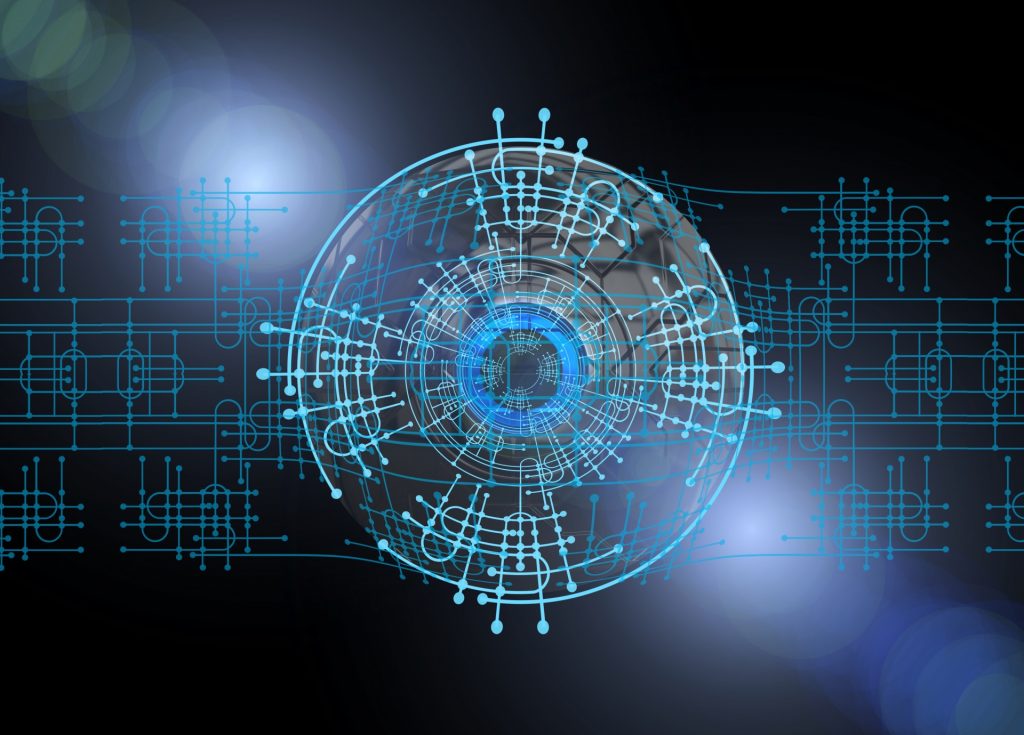How Will AI Affect Next Election?
Artificial Intelligence could have a huge impact, ramping up disinformation in swing states like Wisconsin.
Artificial Intelligence (AI) will play a role in the 2024 election season in Wisconsin – dominated by top-of-ticket presidential and U.S. Senate elections – but it’s too soon to know what that role will be.
“AI presents new opportunities and challenges in many walks of life, and that includes campaigns,” said Rachel Reisner, spokesperson for the Republican Party of Wisconsin. “Republicans are already leading the way in ethically responsible advertising using AI to reach voters, as evidenced by a recent ad from the Republican National Committee (RNC) that has been pointed to as a model for political advertising.”
Axios reported that the RNC greeted President Joe Biden’s re-election announcement with an AI-generated ad showing Biden and Vice President Kamala Harris celebrating after winning new four-year terms. The story reported that the ad then imagined reports about international and domestic crises that would follow a Biden victory in 2024.
“As AI ads continue to develop, we will continue to research and look to successful models, like the RNC, as we navigate this uncharted territory.” Reisner added. She noted that a member of Congress, Democratic Rep. Yvette Clarke of New York, sponsored legislation requiring disclosure of all AI-generated content in political ads.
A Washington Post story noted two fake AI-generated events: “A bogus video of President Biden reinstating the draft and sending America’s finest to aid Ukraine’s war effort. Fake photos of former president Donald Trump being arrested in New York.”
In an interview, Wisconsin Democratic Party Chairman Ben Wikler said he is closely following AI research to learn what role it might play next year.
Since Wikler became the party’s leader in 2019, he has invested heavily in social media and information technology. The state Democratic Party, which had one employee dedicated to social media when he became chair, now has a 12-employee “digital team.”
Wikler, who has almost 140,000 followers on Twitter, explained his focus on social media and why he is open to reaching voters in new ways::
“People spend so much of their lives now in front of screens. Social media collapses distance and it allows for instant meaningful connections.
“So much of local journalism has been gutted, so for many people, they don’t have a source of political news…We try to communicate at every step through multiple channels on social media, so people can amplify that message to the people in their own network and cut through the noise.”
Marquette University professor and pollster Charles Franklin said he is “generally a skeptic” about AI and politics. But, he added, “One point has been widely appreciated: The ability to create ‘deep fakes’ in both audio and video make it likely we see disinformation attacks distributing video of a candidate saying something damaging – most likely shortly before election day when there isn’t enough time for journalists to report it as a fake.
“Robocalls faking a candidate’s voice might be one avenue for this, in addition to social media.”
Franklin is worried that “AI will generate news stories and social media posts that are not fake, but rewrites of press releases and other news.”
“These will lack a reporter’s judgment in what and how to report and will lack any follow-up efforts that reporters would do,” Franklin said. “This will dumb-down those stories and posts … not adding important new information or insight. AI could generate far more of these ‘stories’ than the surviving press corps, so the volume of AI could overwhelm human reporting.”
That is likely, Gary Marcus, an emeritus professor of psychology and neural science at New York University, and an AI entrepreneur and author, warned in a New York Times interview. “People are going to fake New York Times articles, fake CBS News videos. We had already seen hints of that, but the tools have gotten better. So we’re going to see a lot more of it — also because the cost of misinformation is zero,” Marcus said, adding:
“If we don’t do something, the default is that by the time the election comes around in 2024, nobody’s going to believe anything, and anything they don’t want to believe they’re going to reject as being AI-generated. And the problems we have around civil discourse and polarization are just going to get worse.”
Expect a hotly contested state like Wisconsin to be a focal point as AI explodes into politics.
Steven Walters started covering the Capitol in 1988. Contact him at stevenscotwalters@gmail.com
If you think stories like this are important, become a member of Urban Milwaukee and help support real, independent journalism. Plus you get some cool added benefits.
The State of Politics
-
RNC Brings Fame to Gen Z Party Leader
 Jul 15th, 2024 by Steven Walters
Jul 15th, 2024 by Steven Walters
-
Wisconsin’s Republican Roots Run Deep
 Jul 8th, 2024 by Steven Walters
Jul 8th, 2024 by Steven Walters
-
Feuding Supreme Court Justices Need a Break
 Jul 1st, 2024 by Steven Walters
Jul 1st, 2024 by Steven Walters






















